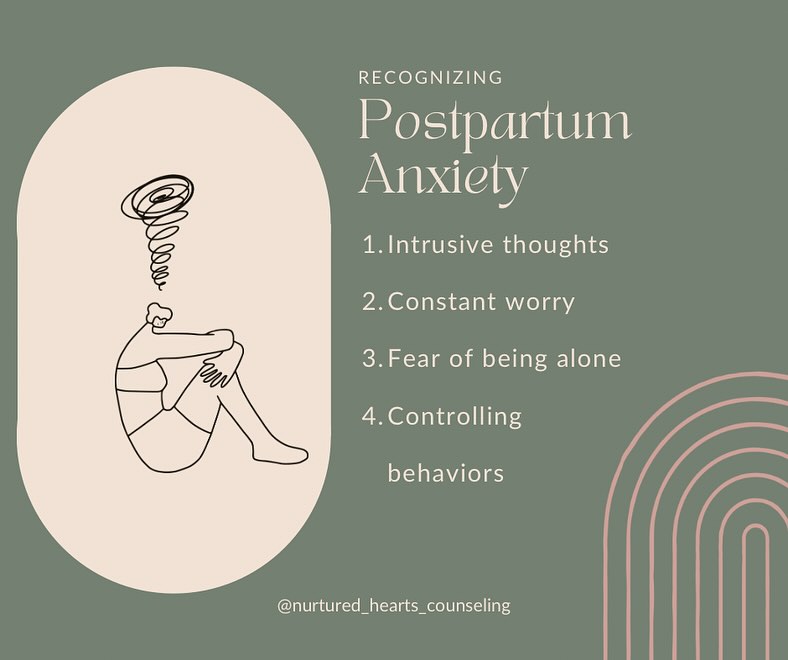
- Intrusive Thoughts
- Intrusive thoughts are unwelcome, unpleasant, involuntary thoughts that occur and cause distress. They are very common in the postpartum period and can manifest as thoughts of harm coming to your baby. Thoughts like, “What if I drop my baby down the stairs?” or “What if my baby stops breathing?” can come seemingly at random and can be very upsetting.
- Constant Worry
- Ongoing worry making it difficult to function is one of the hallmark features of anxiety. It can cause tension, guilt, and fear in a new parent and can interfere with the parent-child bond, interfere with sleep, can make it difficult to complete daily tasks, and can cause panic attacks. It often co-occurs with postpartum depression.
- Fear of Being Alone
- Postpartum anxiety can also manifest as a fear of being left alone with your baby. This can be a result of worry about our abilities as a parent, fear of physical danger, or even intrusive thoughts about harming your baby, either intentionally or unintentionally.
- Controlling Behaviors
- In order to manage the discomfort of anxiety, we can exhibit controlling or overly cautious behaviors. While this can bring momentary relief and a sense of safety, it is a form of avoidance and can perpetuate the long-term growth of anxiety.
Did you know?
1 in 5 women experience postpartum anxiety (PPA)! Though it seems like sometimes postpartum depression gets more attention, postpartum anxiety actually occurs more often.
I can speak from personal experience on this one. After my first baby, I used to stay up at night with intrusive thoughts which included (but were not limited to) fear that my baby would stop sleeping, or fear that a tiger (yes, I know) was hiding under my bed and would eat us both while we were sleeping. Irrational? Yes, but it kept me awake at night. While some degree of anxiety can be expected as new parents, when it interferes with your functioning, it becomes a problem.
Here are some more facts about postpartum anxiety:
👉🏻 It often co-occurs with postpartum depression
👉🏻 Circumstances of birth can play a part. Traumatic births can increase the risk of postpartum anxiety.
👉🏻 It may not look like any of the signs listed above! It can also look like increased irritability, a fear of leaving your baby with anyone else (sometimes the other parent!), a fear of even leaving your house, or physical symptoms like shortness of breath and heart palpitations.
👉🏻 It can be treated! Finding the right provider for you can make a world of difference in your parenting journey and can drastically increase your quality of life postpartum.
If you have ever struggled with PPA, then you know how all-consuming this worry can be. If you find yourself in the grip of PPA or know someone who is struggling, please reach out for help. It doesn’t have to be this way!
I am currently offering virtual sessions in the state of Texas, and in-person sessions for those in the Rockwall or Dallas-Fort Worth area!
